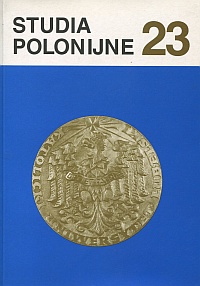Napływ kadr naukowo-technicznych do Afryki Północnej a stosunki Polski z krajami arabskimi po II wojnie światowej
Main Article Content
Abstrakt
The paper sought to show the place of Polish scientific and technical staff in the life of the North-African Arabian countries, and their role in the formation of political relations between Poland and the Arabian world after World War Two. Political transformations that took place in Poland in the period of 1944-1948 generally affected the international relations of Poland. The paper proves that specialists migrated to the North-African coast from the Polish territories that took shape due to the decisions of the allied empires at the three peace conferences from the years 1943-1945. Therefore the publication does not show the role of Poles in the life of Arabian societies, the Poles who arrive in North Africa from the third countries. Polish-Arabian political and economic relations could then be based on scientific and technical staff selected by the centres of foreign trade with their diplomatic posts all over the country.
Polish scientific and technical staff were employed in the countries of the Third World by virtue of job contract between a Polish or local employer. In the case of large industrial or building investments specialists were sent to work on collective contracts by special foreign trade companies. The most important here are BUDIMEX, DROMEX, ELEKTRIM, KOPEX, POLIMEX-CEKOP and Polservice. The latter was the main institution in the country that employed Polish specialists on individual contracts. Apart from the above there were a dozen or so enterprises entitled to conduct this activity. At the turn of the 1970s and 1980s in the countries of the Third World ca. 19.000 Poles worked, out of whom more than 90 per cent worked in Libyan and Iraq. In the remaining North-African countries worked, on the average, several hundred people.
The trade between Poland and the countries of North Africa was based in that period generally on bilateral contracts. As regards settlement, clearing was applied, a worse form of payment for the Polish party. It is only with Libya that free foreign-exchange settlement was used throughout that period. This form of economic contacts cased a break-down of cooperation in the 1980s, especially after 1989.
Of all countries of the Third World, North Africa was the most important partner for Poland in trade. It constituted ca. 25 per cent of total turnover. Now in contacts with Africa they made as much as 80 per cent of total turnover. In the beginning of the 1970s Egypt received 40 per cent of the whole trade exchange between Poland and African countries, and almost 50 per cent with African Arabian countries. In total, in the second half of the twentieth century there were 120.000 and 150.000 Polish specialists and their families in North African countries. Only in the case of Libya did the amount of the transfer of the means of payment to the country reached 1 billion American dollars. The migration of scientific and technical staff was very important for the organization of the Polish-Arabian political and economical relations.

